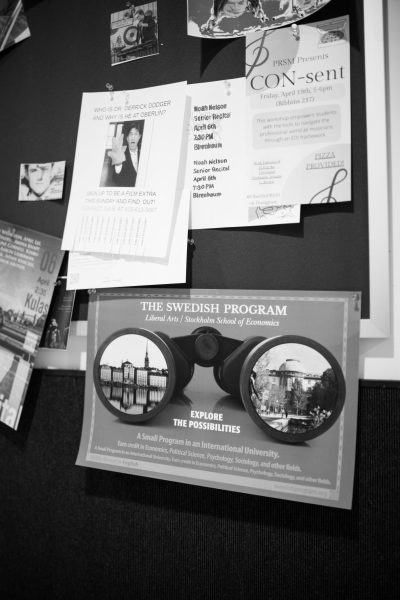In Memory of Adrienne Jones, Pioneer of Africana Studies
Editor’s note: Adrienne Lash Jones, emerita professor of Africana Studies — formerly known as the Black Studies Department — passed away Aug. 28, 2018 at the age of 83. Her husband, L. Morris Jones, died in 2015. The following was written in their memory.
I was sitting at my desk at Denison University in 1991 when I received a phone call from Adrienne Jones. She identified herself as the chair of the Black Studies Department at Oberlin College and asked me whether I would be interested in paying a visit to the Oberlin campus to consider the possibility of an appointment in Caribbean history. We talked for a bit, and at the end of it all, she told me that we should talk again.
We did, and she informed me that she had spoken with the dean at the time and had his support to invite me to visit the campus and be interviewed for a position. I agreed, and the rest is history. I came to Oberlin for one year, had my stay extended by another, and ended up as a tenured faculty member, teaching Caribbean history in the Black Studies department from 1991–2010.
When I arrived on campus, Adrienne and I talked about the curriculum that was developing in the Black Studies Department and the role that Caribbean history was intended to play in it. She had a vision of the curriculum focused on the African diaspora — particularly on Africa, the United States, and the Caribbean.
My impression was that the department was already teaching courses which impinged on these areas but had not yet formalized an emphasis and a vision targeted on the diaspora as such. Caribbean history, for example, was not taught — though Caribbean literature was interrogated in courses offered by Calvin Hernton, himself a scholar, a diasporic man of diasporic repute. Additionally, Yakubu Saaka touched on African religions in the Caribbean and Brazil, where rituals and their offshoots first took root in the New World.
Adrienne’s vision of the department focused on a mix of courses in history, politics, education, and fine arts. In addition, she was of the opinion that the curriculum should be bookended by two courses: an existing introductory course and a brand new senior seminar, which majors would complete in the second semester of their last year.
The course was brand-new, not only in the department but in the College as a whole. I well remember the opposition we received and the meetings we had to attend in order to get approval for the course. Many of the best and brightest were at those meetings, and it was only reluctantly — and in the spirit of experimental teaching — that the proposal was accepted. Since then, many other departments and programs have adopted the senior seminar as a closing requirement in their majors.
In the period in which she was chair, Adrienne Jones was foremost in conceptualizing and implementing some of the most important new directions in the department and in the College. To her we owe deep gratitude for shaping the curriculum of the modern African-American, and lately christened Africana studies.
But Adrienne wasn’t done yet. She was also instrumental in conceptualizing and establishing the then newly-born feminist studies department. She encouraged students and colleagues to actively participate in the department as well.
Adrienne was the first female African American professor and a formidable presence on the campus. There is reason to believe that deans trembled at the sound of her feet marching into their offices, as she often did. She achieved a lot because of the strong personal influence that she wielded on campus. She was at her best stride with Sister Dolores Nevels at her side. Adrienne would have been delighted by the realization of her long-standing dream of an African American, Carmen Twillie Ambar, as president of Oberlin College.
I suspect that a lot of what she was had to do with the joyful relationship that she shared with her husband, Morris. They were nice people. Morris and I always exchanged stories about Cuba. He loved the island, and so do I. My wife was born there, and Morris learned to speak Spanish on one of his visits to Cuba.
All in all, Adrienne and Morris were wonderful people. We are lucky to have known them and enjoyed their friendship, and we will miss them greatly


